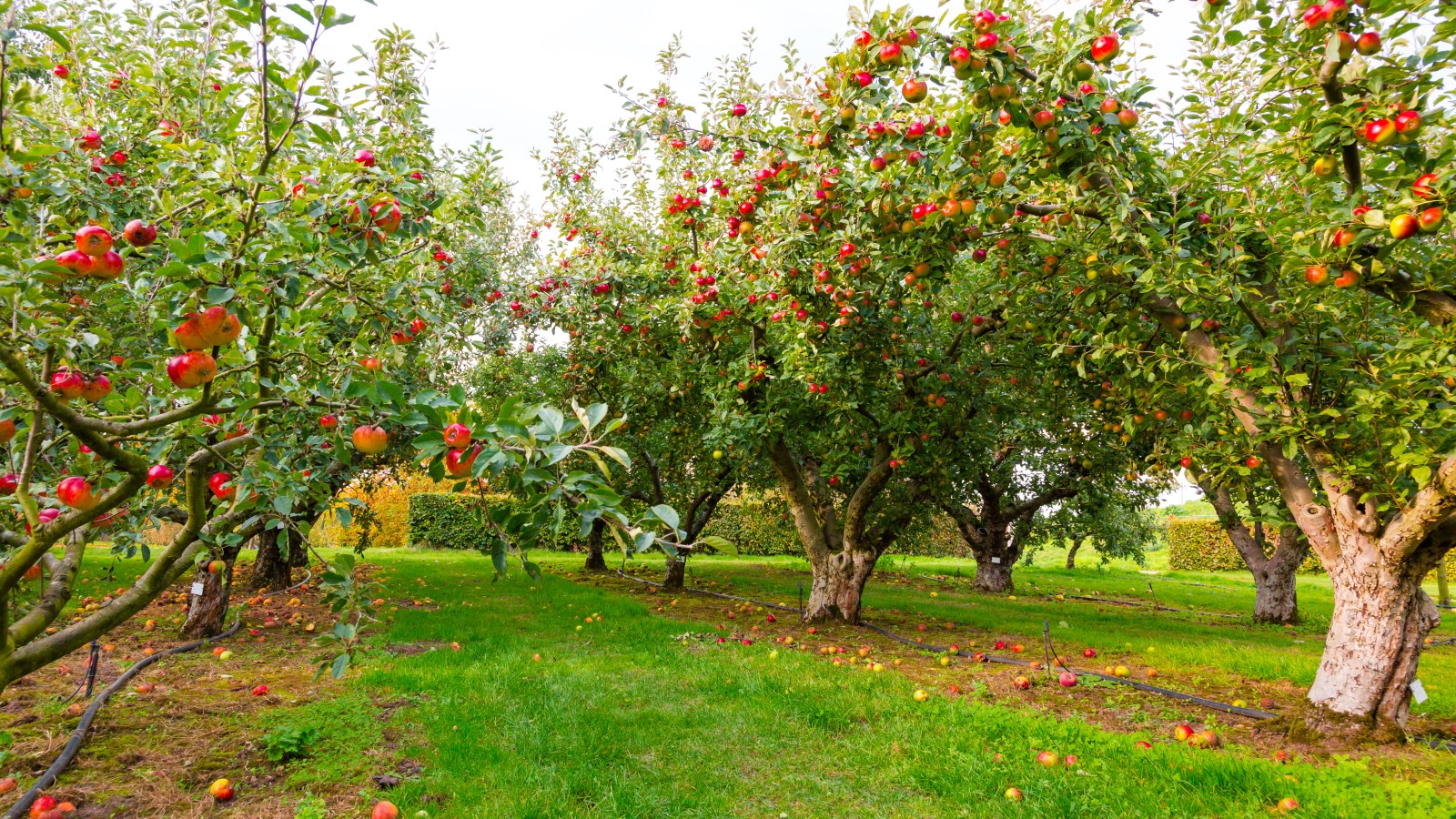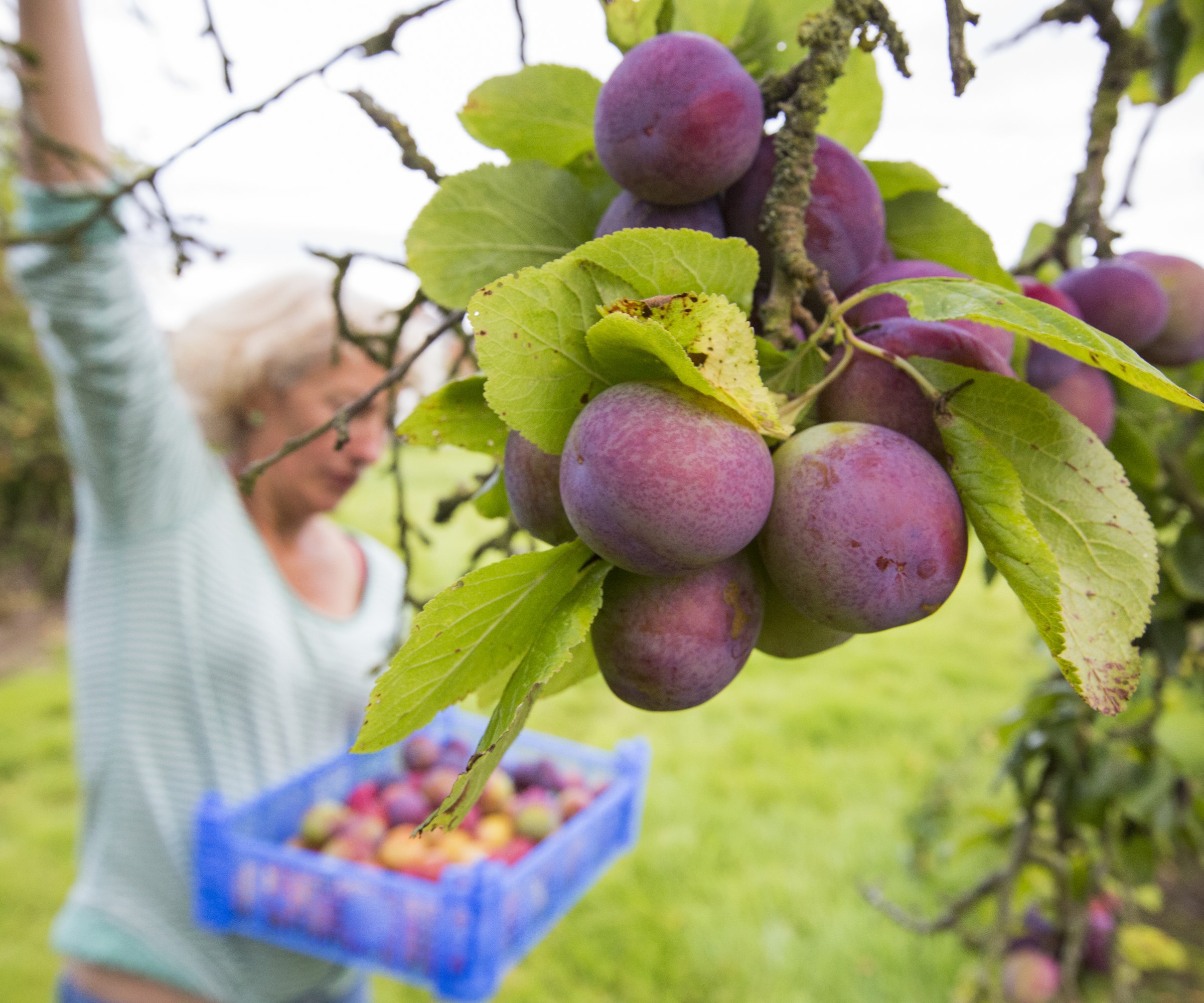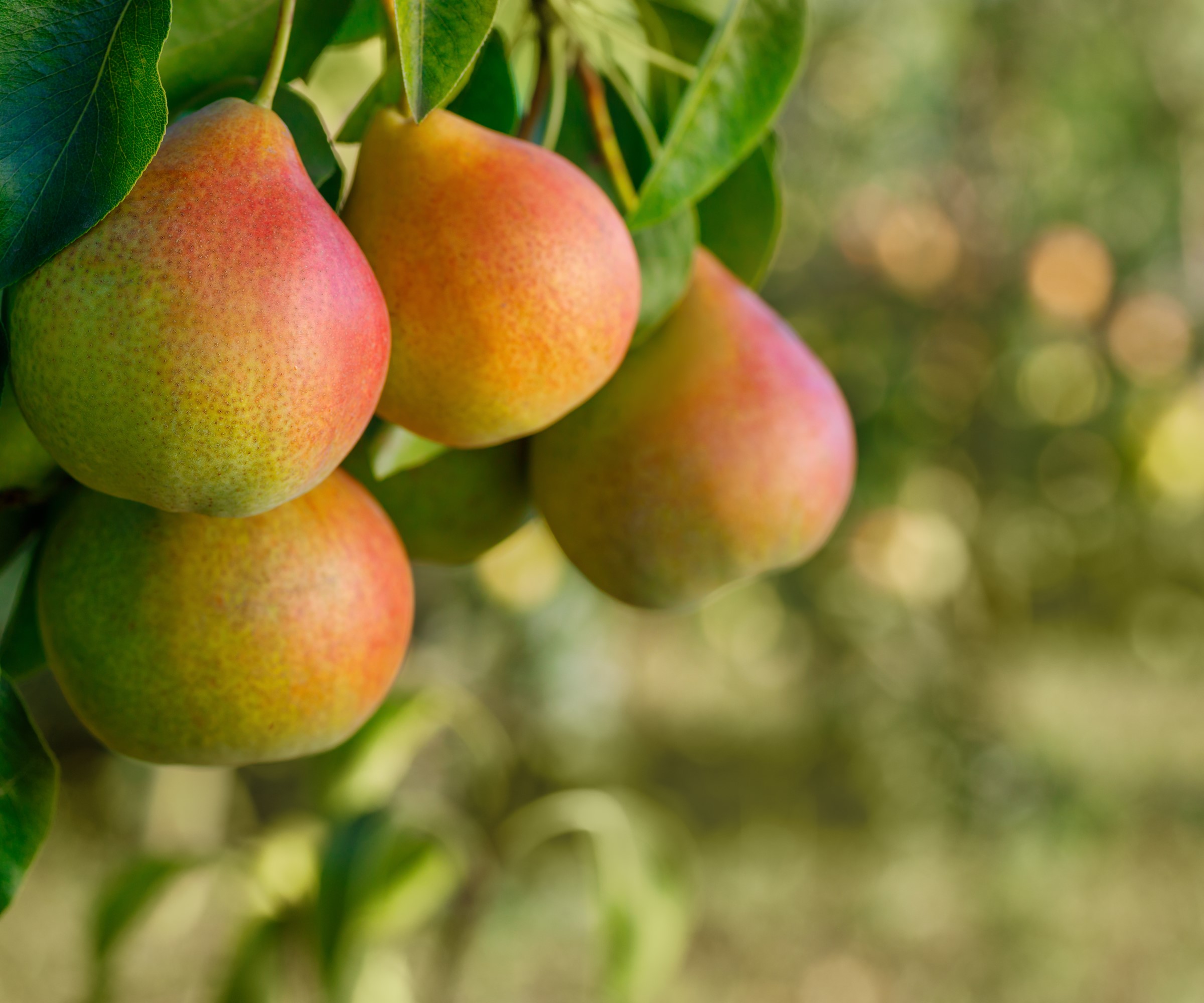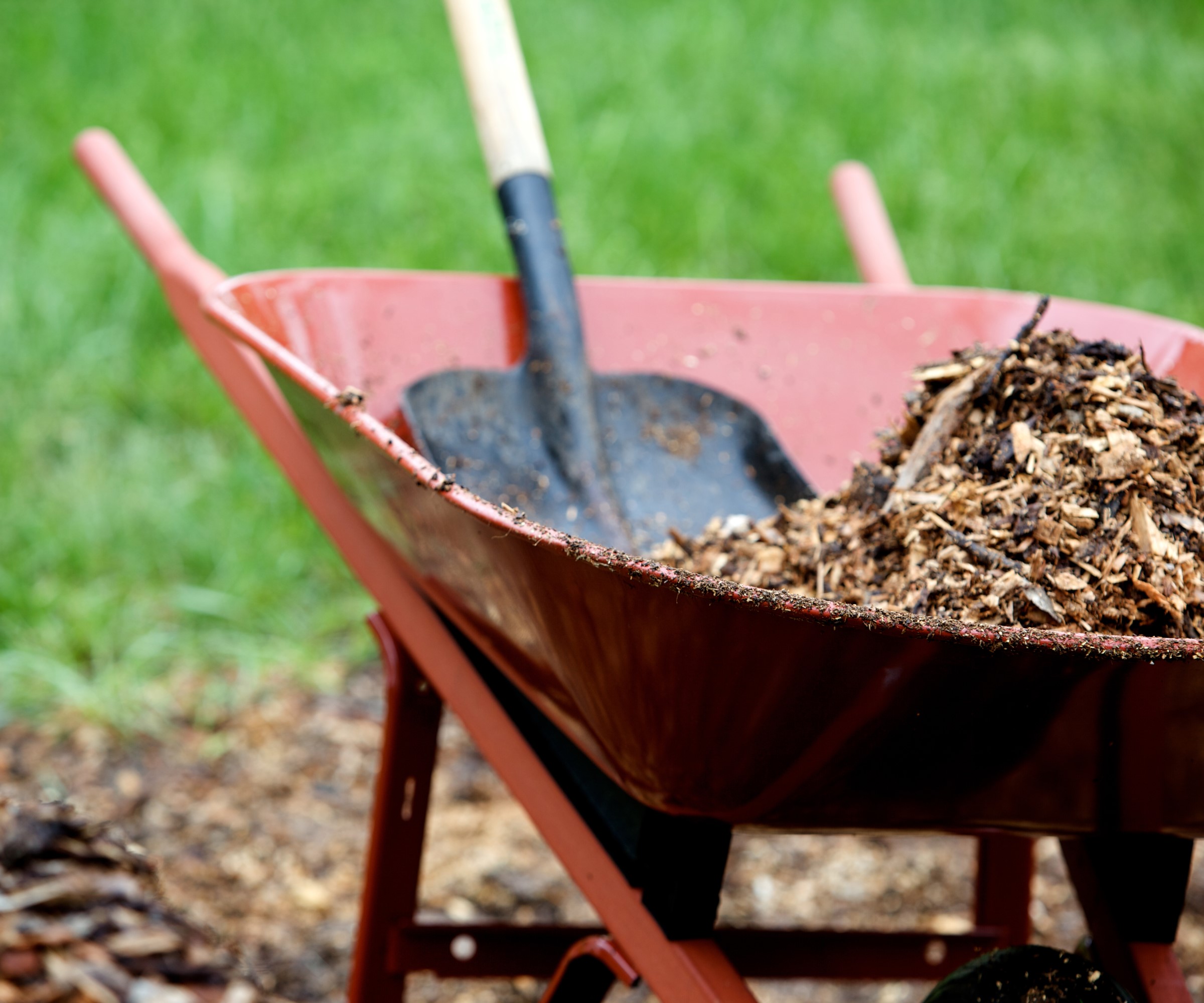When to fertilize fruit trees to ensure you have healthy plants and bumper crops
Keep your fruit trees happy and thriving by knowing when to feed and mulch your trees


Growing fruit trees in your garden can give you a bounty of delicious and fresh homegrown fruit superior to any you get in stores. Fertilizing your fruit trees helps keep the plant healthy and produces the best fruit for you and your family.
All of the best fruit trees, including popular crops such as apples, pears, peaches, and plums, need lots of nutrients to grow and produce fruit. These essential nutrients can all be provided through the process of feeding trees and also the use of mulches.
Whether you have a homegrown orchard, fruit trees growing in pots, or just a tree or two in the garden, then it is important to know when to fertilize fruit trees to keep your plants happy.

Plums are fed after the buds start to break
What is the best time to fertilize fruit trees?
The best time to fertilize an established fruit tree is in late winter or early spring, just as the new growth starts for the season. This is when they need the most help with key nutrients that can help to support that new growth and keep the tree healthy throughout the growing and fruiting season. The ideal time is when the buds break and before the flowers start to open, around six weeks before the tree is usually in full bloom. You can feed fruit trees throughout the spring and summer, but the cut-off point comes in July.
Young fruit trees, those that are under three years old, should also be fed in spring. Meredith Gaines, plant expert for Fast Growing Trees, warns to ‘be mindful’ when it comes to fertilizing newly-planted fruit trees.
She says: ‘If you used a potting mix or other soil additives when planting, they might have fertilizer mixed in already, so there is no need to add extra. Just read the labels and if you accidentally add too much, just deeply water the soil to remove the excess.’
Mulching can be massively beneficial for fruit trees, both newly planted and established ones. The best time to mulch fruit trees is in the spring or fall, this helps to combat weeds and also works to keep moisture in the soil to the benefit of the fruit tree.

Meredith Gaines is a senior plant expert at Fast Growing Trees. She graduated from Clemson University with a degree in Biology and Horticulture and has worked at the South Carolina Botanical Gardens and Historic Filoli Estate in the Bay Area.

Pear trees should not be fed with balanced feed after July
Should you fertilize fruit trees in the fall?
It is not advisable to apply fertilizer to fruit trees in the fall or during winter, which is a time when the tree should be entering dormancy and not actively growing. Nancy Trautz-Awot, horticulture specialist at Burpee Gardening, warns of the dangers of fertilizing fruit trees in the fall, saying how it ‘can stimulate weak growth that can be killed with the frost’ and ultimately damage the tree. Also avoid fertilizing fruit trees during periods of drought or heatwave, where a tree is likely to be under stress and won’t react well to the extra influx of nutrients.
While it is not recommended to use fertilizer during the fall, you can mulch fruit trees in the fall if you did not give them a mulching earlier in the year. Mulching in fall can help to protect the roots of young fruit trees from any extreme winter cold.

Mulching can be done in spring or fall
If you are thinking of planting apple trees, planting cherry trees, planting plum trees, or any other fruit tree in your garden, then remember to think about feeding them. Fertilizing fruit trees is an aspect that often gets overlooked, especially when compared to other maintenance tasks such as watering and pruning fruit trees. However, nurture and feed your fruit trees and you will be rewarded with a bumper crop of fruit year after year. Make sure to also research when to fertilize citrus trees, as there are a few different rules to follow.
Sign up to the Homes & Gardens newsletter
Design expertise in your inbox – from inspiring decorating ideas and beautiful celebrity homes to practical gardening advice and shopping round-ups.

Drew’s passion for gardening started with growing vegetables and salad in raised beds in a small urban terrace garden. He has worked as a professional gardener in historic gardens and specialises in growing vegetables, fruit, herbs, and cut flowers as a kitchen gardener. That passion for growing extends to being an allotmenteer, garden blogger, and producing how-to gardening guides for websites. Drew was shortlisted for the New Talent of the Year award at the 2023 Garden Media Guild Awards.
-
 Everyone is obsessed with vintage tiles right now – bring the nostalgic charm of this classic design feature into your home with our 5 design ideas
Everyone is obsessed with vintage tiles right now – bring the nostalgic charm of this classic design feature into your home with our 5 design ideasHonor the past with our favorite ways to decorate with vintage tiles, as suggested by interior design experts
By Eleanor Richardson Published
-
 'It's a fast reset button' – using the 1, 2 ,3 ,4, 5 decluttering method cleared my persistent mess in seconds
'It's a fast reset button' – using the 1, 2 ,3 ,4, 5 decluttering method cleared my persistent mess in secondsIt's easy, effective and so quick to do
By Ottilie Blackhall Published